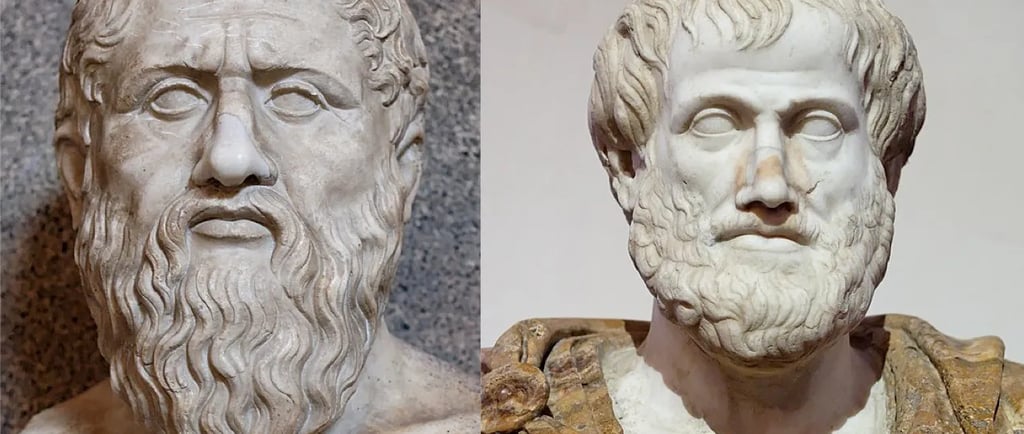Discuss the differences between the theories given by Platos and Aristotle?
PSIR
8/4/20251 min read


Plato and Aristotle, two pillars of Western philosophy, demonstrate contrasting approaches in their political thought and philosophical understanding, reflecting the fundamental tension between idealism and empiricism in political philosophy.
Key Differences in their Philosophical Approaches
Epistemology and Reality
Plato advocated for the Theory of Forms, believing in a transcendent reality beyond the physical world where perfect forms exist.
Aristotle adopted an empirical approach, emphasizing observation and experience as the basis of knowledge and understanding.
Political Organization
Plato's ideal state in "The Republic" proposed a three-tiered society with philosopher-kings as rulers, guardians as protectors, and workers as producers.
Aristotle's approach in "Politics" favored a more practical system based on mixed constitution, combining elements of democracy, oligarchy, and aristocracy.
Property and Social Structure
Plato supported communal ownership of property for the ruling class to prevent corruption and ensure dedication to public service.
Aristotle defended private property rights, arguing they encourage responsibility and better resource management.
Education and Knowledge
Plato's educational system focused on developing philosopher-kings through rigorous training in mathematics, dialectics, and philosophy.
Aristotle emphasized practical wisdom (phronesis) and believed in education that develops both theoretical and practical skills.
Contemporary Relevance Governance Models
Plato's ideas influence modern technocratic governance systems where experts play crucial roles in decision-making.
Aristotle's thoughts reflect in contemporary mixed governmental systems and constitutional democracies.
Social Organization
Plato's concept of specialization resonates with modern professional bureaucracies.
Aristotle's emphasis on the middle class aligns with current social democratic approaches.
Their contrasting approaches continue to influence modern political thought, from debates on expertise vs. democracy to discussions on property rights and social justice. The enduring relevance of their ideas demonstrates how ancient philosophical frameworks can illuminate contemporary political challenges. As we navigate complex modern governance issues, both Platonic idealism and Aristotelian pragmatism offer valuable insights for balancing competing political imperatives.